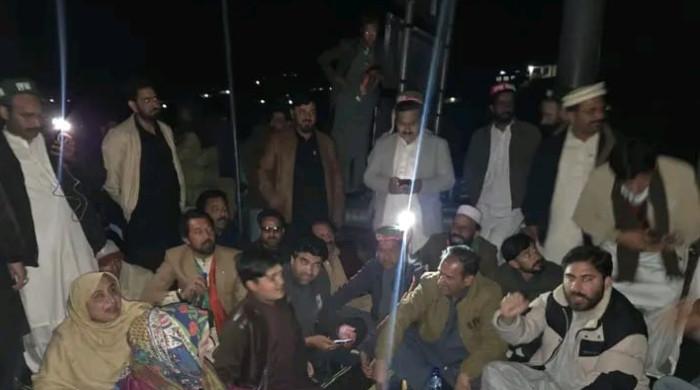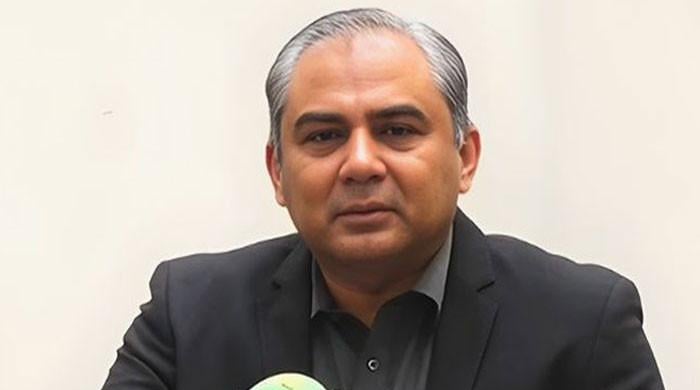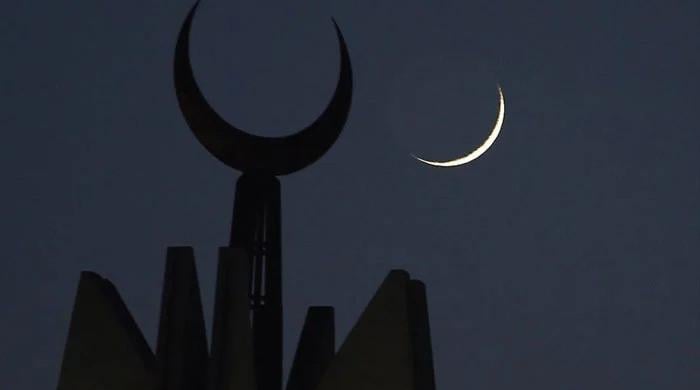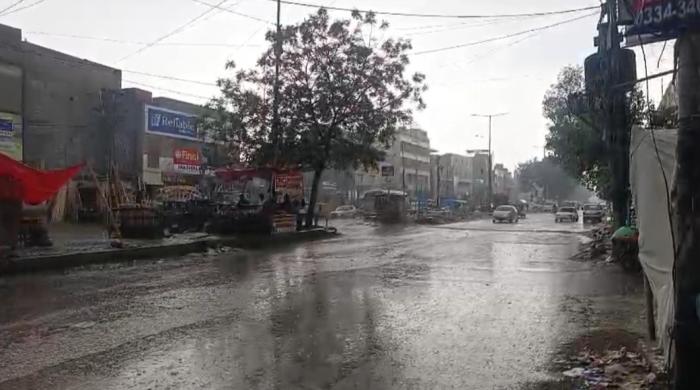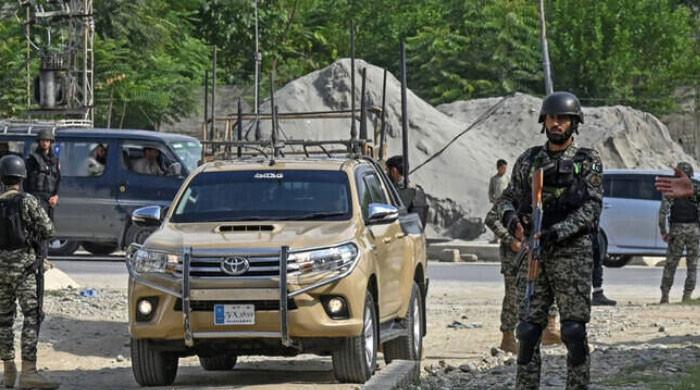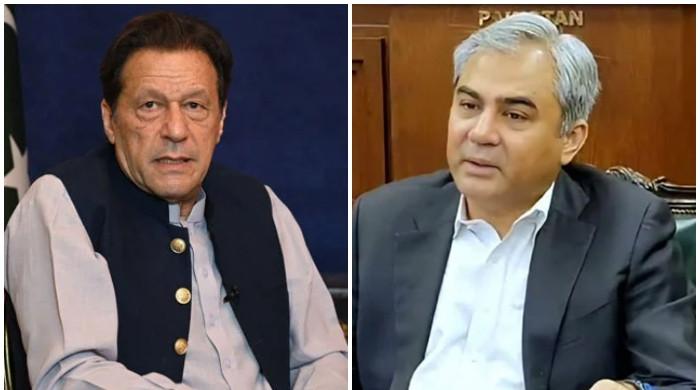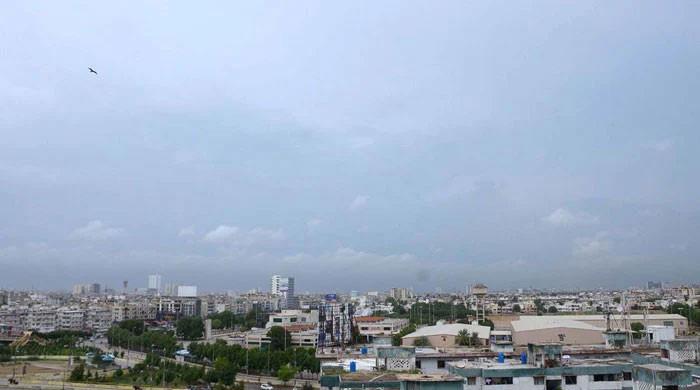China Overseas Port Holding Company was made specifically to build the Gwadar port: chairman
Zhang Baozhong, chairman China Overseas Port Holding Company talks to Geo.tv about the future of the port and the people of Gwadar.
May 14, 2019
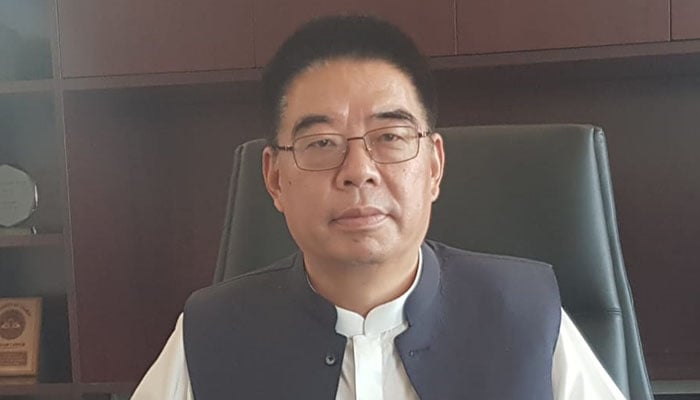
Geo.tv speaks to Zhang Baozhong, chairman of China Overseas Port Holding Company (COPHC), the sole operator of the Gwadar Port, about the future of Gwadar and some of the hurdles his company faces in developing it.
Excerpts:
Q: Can you tell us about your company and its past projects?
Baozhong: The COPHC was specially-designed and purposely-built for the construction of the Gwadar Port by the Chinese government. We were handed over control of the port and the Gwadar Free Zone on May 16, 2013, for a period of 40 years. The objective of the company is to develop a strategically well-located port into a hub of maritime trade for the whole region, including the landlocked Central Asian Region (CAR), in general, and for Pakistan in particular.
Q: What are some of the roadblocks that your company has faced in constructing the Gwadar port?
Baozhong: Constructing the port was a mission impossible. Before we were given control, development work at the port had been slowly progressing for the last 20 years. Even attempts to give state subsidiaries did not help in accelerating construction. Gwadar was plagued with rundown roads, poor water and sewerage systems, deteriorating civic amenities and barely any business activities. Post-2013, the port’s outlook looks more promising. Phase one of the free zone, costing $150 million, has been completed and has already started rendering commercial benefits. It now generates $100 million in revenue per year. Upward to 34 Pakistani and Chinese companies have been registered in the zone. This, in turn, has helped create over 5,000 jobs so far. The next phase of the zone will commence from next year.
Q: Are these projects environment-friendly?
Baozhong: Yes. Absolutely. We have teamed up with Pakistan’s government to transform Gwadar into Pakistan’s first emission-neutral and clean green city. In the next five years, we plan to plant one million trees, to materialize the dream of a green economy driven by the shared vision of “Clean Green Pakistan” and China’s “Eco-Civilization”. Apart from this, we hope to address the issues of solid waste, liquid waste, sanitation and provision of clean drinking water in the area.
Q: Is it true that the local manpower is unskilled for such projects?
Baozhong: It is true. The local people are not equipped with technical and vocational knowledge, modern trends, innovate research and hands-on experience. But the Pak-China Technical and Vocational Training Institute will play a vital role to fix this. The land to build the institute has been acquired already.
Q: What about the women of Balochistan? How can they contribute and be made part of the workforce?
Baozhong: Women must play an important role in the development of the area. They have the capacity to lead in various commercial sectors in the port. Our company encourages more women to apply for the jobs we have to offer, but in many cases, women quit after marriages here. This affects their overall contribution.
Q: Pakistan has been inviting other countries to be a part of the China-Pakistan Economic Corridor (CPEC)?
Baozhong: China does not have any concerns about overseas investments. There is no embargo on foreign companies. We welcome everyone who would like to contribute.
Q: As Gwadar is modernised, people with traditional means of livelihood, such as fishing, boat-making and transportation will be left without any source of income. How can you help them?
Baozhong: The COPHC has been taking effective measure to upgrade the fishing sector, and allied businesses, under the Gwadar Livelihood Project. In order to resolve their grievances, the Pakistani government has constituted a committee comprising of local fishermen and officials.
Q: There have been some serious incidents of terrorism in Balochistan recently. How do you see this?
Baozhong: The enemies of China and Pakistan are hell-bent on unleashing extremism and terrorism to sabotage public-centric projects. But the Gwadar Port and the CPEC are on track to achieve their targets. Through the Makran coastal highway tragedy, the evil forces tried to intimidate us. However, we stand unthreatened. We feel safe and secure in Pakistan.
Khan is a reporter based in Lahore.




